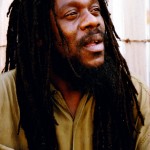By Howard Campbell
WHEN Dennis Brown died on July 1, 1999, music producer Mikey Bennett paid him the ultimate compliment. “He was the best thing that happened to a reggae song,” Bennett said.
Brown was just 42 when he died. Many people could not believe he was that young given his long career. He inspired older singers during his stint at Studio One in the late 1960s; a new wave of roots vocalists who emerged during the 1970s; and dancehall’s elite singers of the 1980s.

Bob Marley, it is widely reported, idolized Dennis Brown. Veteran artist manager and booking agent Copeland Forbes, who worked with both artists, recalls approaching the world-famous engineer Alex Sadkin to help guide Brown’s Foul Play album for A&M Records in 1981.
The budget was tight but Sadkin, who was engineer for Marley’s Survival album, was willing to work with Brown on a sole recommendation.
According to Forbes, Sadkin said: “Bob talks about that man every day.”
Most Jamaican singers are influenced by Brown. Some started their careers sounding like him: George Nooks, Junior Delgado, Frankie Paul, Richie Stephens, and Luciano.

In a 1997 interview with the Jamaica Observer, Delgado spoke about Brown’s range as a vocalist. “There’s nobody like the “Boy Wonder,” yuh nuh. Yuh si D Brown now…Bwoy, is jus’ sign an’ wonders.”
Dennis Brown’s recording career started in 1968 with Derrick Harriott who produced Lips of Wine, his first hit song. He moved on to Clement Dodd and Studio One where his prodigious talent shone on songs like No Man Is An Island, Walk A Mile In My Shoes, If I Follow My Heart, and Little Green Apples.
In the early 1970s Brown was prolific. He recorded hits for a number of producers a la Alton Ellis, but his sessions with two of them stood out — Niney Holness and Joe Gibbs.
Brown considered Holness the best producer he worked with. They created magic on Westbound Train, Cassandra, Africa, Wolf And Leopards, Whip Them Jah Jah, and No More Shall I Roam.

His partnership with Gibbs lasted 10 years. Words of Wisdom and Visions of Dennis Brown, two of Brown’s best albums, were done for Gibbs. Love Has Found Its Way, one of three albums he did with A&M, was also produced by Gibbs.
The early 1980s heard him teaming with Sly and Robbie on a number of quality songs, including Sitting And Watching, Have You Ever and Revolution. Later that decade, he and Willie Lindo fashioned the mellow Inseparable, arguably his last great album.
By the 1990s, rumors that Dennis Brown was a full-fledged drug addict were rife. Most of his productions from that period are mediocre and live performances generally sub-standard.
He never got the international acclaim Marley, Burning Spear, Peter Tosh, or Bunny Wailer enjoyed. In fact, Brown’s biggest commercial successes were Money In My Pocket and Love Has Found Its Way.
There can be no denying his impact. In 1998 Mick Hucknall of Simply Red covered Stay At Home (as Ghetto Girl) for Sly and Robbie’s Grammy-winning album; in 2010 Junior Gong and rapper Nas sampled his Promised Land for their song, Land of Promise; Jah9 covered Bloody City last year; and Have You Ever was covered, also in 2016, by British singer Marsha Ambrosius.
Dennis Brown is interred at National Heroes Park in Kingston, a gesture that was criticized in some quarters as undeserving. His funeral at the National Arena drew a full house of fans, public officials and artists.
It was a reception fit for a crown prince.


You must log in to post a comment.